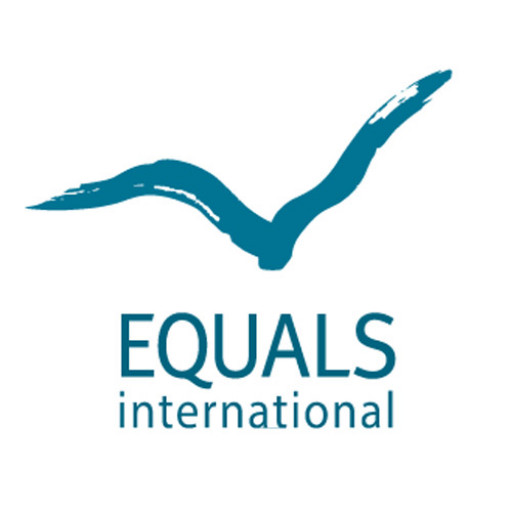This qualification reflects the function of a registered nurse working under supervision of a registered nurse. This qualification covers the application of knowledge and skills needed to provide nursing care for those across the medical industry. A life span approach needs to underpin this qualification with important competencies that relate solely to different stages of life identified within the components. To be eligible to apply for enrollment as a registered nurse also to clinic in Australia, you must complete a designation of Nursing program licensed by the Australian Nursing and Midwifery Accreditation Council (ANMAC) and approved because \u2018an approved program of study\u2019 by the Nursing and Midwifery Board of Australia (NMBA ) in accordance with the Enrolled Nurse Accreditation Standards.Visit https://www.ahpra.gov.au/Education/Approved-Programs-of-Study.aspx?ref=Nurse&Type=General&div=Enrolled%20Nurse%20%28Division%202%29 to confirm your preferred Registered Training Organisation (RTO) holds the essential accreditation.Note the scope of practice for enrolled nurses is dependent on state and territory legislative requirements and the policies and procedures of the employing organisation. Clients with this qualification must refer to those tools in the creation of assessment and training strategies.
The Nursing program at Bendigo TAFE offers students a comprehensive education that prepares them for a rewarding career in healthcare. This course is designed to develop the essential skills and knowledge needed to provide high-quality nursing care to diverse patient populations. Throughout the program, students will engage in both theoretical and practical learning, ensuring they are well-equipped to meet the challenges of the healthcare environment.
The curriculum covers a wide range of topics, including human anatomy and physiology, health assessment, pharmacology, mental health, community health, and legal and ethical issues in nursing. Students will also learn about infection control, patient safety, and effective communication techniques to ensure holistic patient care. Emphasis is placed on developing critical thinking and problem-solving skills, enabling students to make informed decisions in complex medical situations.
Practical training is a key component of the program, with students participating in clinical placements across various healthcare settings. These real-world experiences allow students to apply their classroom knowledge, develop hands-on skills, and gain confidence in their nursing abilities. Under the supervision of experienced professionals, students will learn to prioritize patient needs, manage care plans, and work collaboratively within multidisciplinary teams.
The Nursing program at Bendigo TAFE is designed for individuals passionate about helping others and committed to making a positive difference in people's lives. Upon successful completion of the course, graduates will be eligible to apply for registration with the Australian Health Practitioner Regulation Agency (AHPRA) and pursue employment in hospitals, community health centers, aged care facilities, and other healthcare environments.
The program also offers pathways for further education and specialization in nursing, supporting lifelong learning and continuing professional development. With a focus on practical skills, ethical practice, and compassionate care, Bendigo TAFE's Nursing program aims to produce competent, confident, and caring nursing professionals ready to serve their communities.
Completion of a Certificate IV in Nursing (Enrolled Nurse) or equivalent qualification is required for entry into the nursing programs at Bendigo TAFE. Candidates must demonstrate proficiency in English, typically through an acceptable English language test or completion of prior studies conducted in English. The program is designed to meet the registration standards set by the Nursing and Midwifery Board of Australia (NMBA), including competency standards for enrolled nurses. Prior to commencing clinical placement, students must obtain a valid Working with Children Check (WWCC) and a Police Check to ensure suitability for working with vulnerable populations. Applicants are also required to undertake a health screening, including immunisations against hepatitis B, influenza, MMR, varicella, and other relevant vaccinations as per health authority requirements. A minimum of Year 12 or equivalent may be necessary, along with relevant work or volunteer experience in healthcare environments, which is highly regarded. The program involves both theoretical coursework and extensive practical clinical placements to ensure students develop the essential competencies required for safe and effective nursing care. Students are expected to adhere to the code of conduct and professional standards established by the Australian Nursing and Midwifery Accreditation Council (ANMAC). Successful completion of the program qualifies graduates to sit for the National Registration Examination administered by the NMBA, which is mandatory for registration as an enrolled nurse in Australia. The program also emphasizes cultural competence, ethical practice, and communication skills to prepare students for the diverse healthcare settings across Australia. In addition, students should demonstrate good literacy and numeracy skills to handle medication administration, patient assessment, and documentation responsibilities. The duration of the program typically ranges from 12 to 18 months, depending on the mode of study and whether it is undertaken full-time or part-time. Entry requirements may be adjusted for mature students or those with prior equivalent qualifications, subject to assessment. Prospective students should ensure they meet all prerequisites and complete the necessary application process through Bendigo TAFE’s admissions portal, providing all supporting documentation as specified.
The financing of the Nursing program at Bendigo TAFE is structured to provide affordable and accessible education options for students. Students can access a range of funding opportunities, including government loans, scholarships, and flexible payment plans. The program qualifications may be eligible for support through the Vocational Education and Training (VET) Student Loans scheme, which helps cover tuition fees for eligible students, reducing the financial burden and making nursing education more accessible. Additionally, Bendigo TAFE offers scholarships specifically for nursing students, which can assist with course fees, textbooks, and other educational expenses. These scholarships are awarded based on merit, financial need, or specific criteria such as community service or academic achievement.
The cost of the program varies depending on the mode of study—whether full-time, part-time, or via online learning—and the student's residency status. International students are required to pay full tuition fees and may not be eligible for Australian government funding schemes, but they can explore international student scholarships or payment plans offered by Bendigo TAFE.
Payment plans are available that allow students to pay their tuition fees in installments rather than a lump sum, making it easier to manage finances while undertaking their studies. Bendigo TAFE also provides financial advice and support services to help students plan their study budget and navigate funding options.
Furthermore, prospective students are encouraged to research external funding options through federal and state governments or private organizations that support nursing studies and healthcare education. The TAFE institute also recommends that eligible students apply early for government assistance and scholarships to maximize their financial support. Overall, the financing options aim to reduce financial barriers and enable students to focus on their studies and future careers in nursing.
The Diploma of Nursing at Bendigo TAFE is a comprehensive program designed to prepare students for a career in healthcare as registered nurses. The course equips students with the essential skills and knowledge required to provide high-quality nursing care in various healthcare settings, including hospitals, community health services, aged care facilities, and clinics. Throughout the program, students engage in a combination of theoretical coursework and practical clinical placements, which are integral to developing competence in patient care, medical procedures, and healthcare systems. The curriculum covers fundamental nursing principles, anatomy and physiology, health assessments, pharmacology, mental health care, and community nursing.
Bendigo TAFE offers state-of-the-art facilities and training environments that mimic real-world healthcare settings, giving students hands-on experience with modern medical equipment and patient interaction. The program is delivered by experienced educators and clinical practitioners who provide mentorship and guidance to foster professional growth. Upon successful completion of the diploma, graduates are eligible to apply for registration with the Australian Health Practitioner Regulation Agency (AHPRA) and are well-prepared to work as registered nurses across Australia. The course also emphasizes the development of critical thinking, communication, and ethical practice, which are essential qualities for effective nursing care. Students have access to support services throughout their studies, including academic assistance, counseling, and career advice, to ensure a successful educational experience. Overall, the Diploma of Nursing at Bendigo TAFE is an excellent pathway for individuals passionate about health care and committed to making a difference in people's lives through quality nursing practice.









